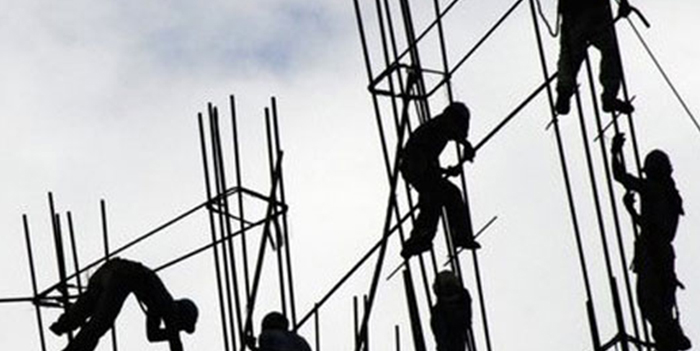
To enhance the credibility of calibration and testing laboratories
A training on technical requirements and quality management ISO 17025 (2005) standard was recently held at the Technical Centre building materials, ceramics and glass.
Innovation in the field of building materials has known for years a significant development through research and studies by experts working abroad and in Tunisia. The goal is to provide professionals with quality building materials, which do not consume a lot of energy and are friends of the environment. These materials are able to reduce energy consumption. The raw materials used in the field of ceramic, glass and building materials had different qualities. The use of good raw materials reduces the cost of production, because they do not consume much energy.
New buildings can be built now with these high quality materials that should be required, however, by the specifications. The people have the right to benefit from welfare and sustainable comfort. We must put an end to the waste and abuse in the construction of buildings. Moreover, the Tunisian-experts who work in laboratories and research centers provide standby and continuous monitoring of new technologies that are emerging from Europe in order to inspire and exploit them in construction. Some raw materials are also available in some regions of Tunisia in sufficient quantities.
Recognition of technical skills
Moreover, within the framework of planned activities following the meeting of the Steering Committee of the project "Strengthening infrastructure for quality solar energy in North Africa", which was held in September 2013 in Ghardaia in Algeria training on technical requirements and quality management of "ISO 17025 (2005)" standard was held in Tunisia from 28 to 30 January at the technical center building materials, ceramics and glass (CTMCCV) which is a partner in the project as a testing laboratory.
Energy is a major challenge in the next step for our country, given the oil prices which are increasing in the external market, which has a direct impact on the price of electricity production. However, despite the high cost of these resources, energy consumption changing to a breakneck pace developed according to studies. The use of energy efficient materials is recommended by experts. Architects are also required to develop their plans based on intelligent configuration so that construction will not be exposed to the sun during the summer, which requires additional power consumption due to switching on for a long period of air conditioners. In winter, some homes suffer rapidly from moisture which participates in the reduction of temperature, which requires a longer use of electric heaters of butane. Some materials currently used are not adapted to the Tunisian climate. With new building materials, the situation may change in the right direction. All stakeholders-producers, builders and inhabitants could find their account in choosing quality materials and energy-efficient configuration for smart home or building to build. Note that the training in question is part of the activities of components "Testing Laboratories" and "Metrology". The target population for acquiring new knowledge and enhance his knowledge of ISO 17025 consists of the technical staffs of testing laboratories and calibration laboratories that have expressed the need to know the requirements of that "ISO 17025: General requirements for the competence of calibration and testing laboratories ". The goal is to qualify for a future application for certification if the progress of the implementation of laboratories and system quality management permits. This International Standard has been prepared by ISO and IEC in 2005. It covers all laboratory analysis and testing. It is the repository used during accreditation audits. The system of quality management of 17025 accredited laboratories is based on the ISO 9001 (2000) standard. Accreditation is recognition of technical skills. Four Tunisian participants of future calibration laboratory anemometers (CertN) and four participants thermal and energy laboratory buildings attended the training.
Corrective and preventive actions
ISO 17025, the international dimension, establishes general requirements for the competence to carry out tests and / or calibrations, including sampling. It covers operations using standard methods, non-standard methods and laboratory-developed methods.
The standard can be applied to all organizations, regardless of their numbers or the extent of their field testing activities and / or calibration. A laboratory meets the requirements of the standard must satisfy both the technical requirements for the tests or calibrations that implements the requirements for its system of quality management. This is to ensure customers the issuance of valid test or calibration results and provide services that meet their needs. The laboratory is part of a real process of continuous improvement. It turned out that the ISO 17025 and ISO 9001 have many similarities but also differences. They are based on a continuous quality improvement through a well-defined policy, corrective and preventive actions, management review, a document control, quality manual, internal audits...
All requirements of ISO 9001 are not included in ISO 17025 as, for example, the approach of process. Mr. Madani Mouadh engineer specializing in systems of measurement and metrology, former technical director of an accredited ANM (National Agency for Metrology in Tunisia) laboratory was responsible for training in Tunisia in January 2014 in Algeria in February 2014 and Morocco in March 2014. The first training was successful, with overall satisfaction rate of 80%. Stakeholders have a thorough idea about the standard that certainly has a positive impact on laboratories that want to strengthen their credibility with their customers.
Press